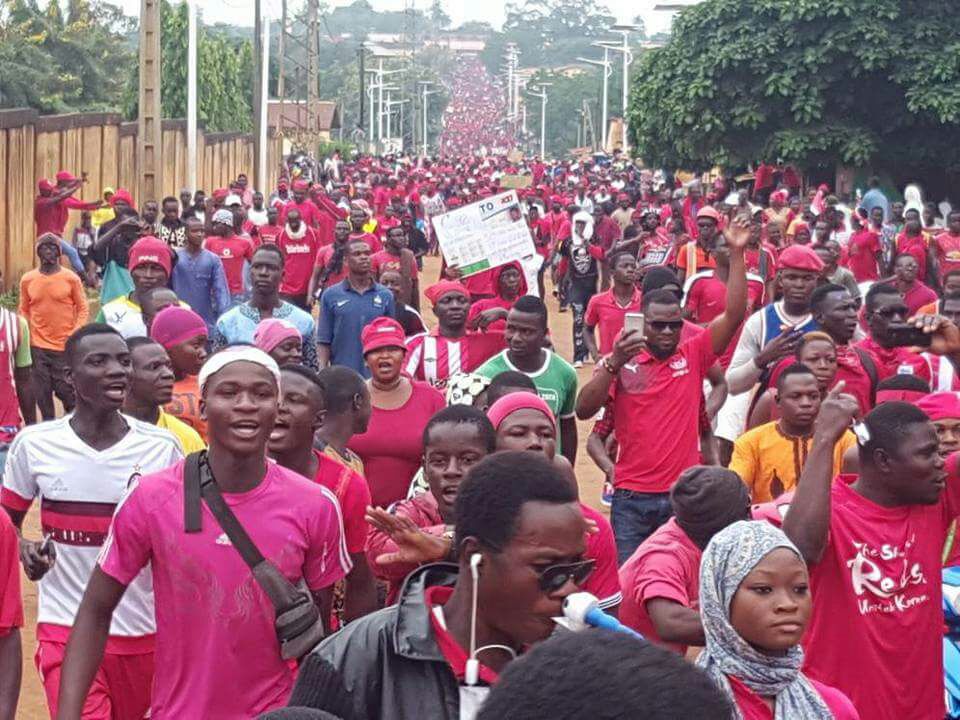On Saturday, thousands of protesters took to the streets of Lome, the capital of Togo, to protest against the country’s president. It didn’t end well. There was tear gas, live fire and people died. Here is what you need to know.
What happened?
Protesters gathered on Saturday in the capital Lome to demonstrate against the Gnassingbe family who have been in power for 50 years.
Thousands of people, led by an opposition party, took to the streets and called for the reinstatement of the constitution limiting terms that had been introduced in 1992.
“We are protesting against the arbitrary nature of governance and denial of freedom to assemble,” Pan-African National Party (PNP) leader Tikpi Atchadam was quoted as having said.
Despite the threats of the minister of security, hundreds of thousand of people are in the street in #Togo to demand term limits. #Africa pic.twitter.com/hXmqNbU1wR
— Farida Nabourema (@Farida_N) August 19, 2017
But protests turned violent when security forces allegedly used force to try and disperse the crowd.
There were parallel protests in Sokode, some 339km outside the capital. Here, security forces allegedly opened fire into the crowd, killing two people, according to officials. Opposition leaders say that up to 13 people were killed.
Where did it take place?
The protests took place in the capital Lome and later in Sokode. Protests also took place in Bafilo, Anie and Kara.
According to several news reports, the protest had been banned on Friday because demonstrators had refused to follow a route designated by government.
Why are people protesting?
Faure Gnassingbe became president in 2005 following the death of his father Gnassingbe Eyadema who ruled the country for 38 years. The military initially installed him as president but after an outcry, elections were held, which he won.
Protesters challenged the election results in 2005 and around 500 people were killed in the subsequent crackdown.
There were elections in 2010 and 2015 which were condemned by the opposition but described as free and fair by the African Union, ECOWAS and the European Union.
Opposition demands for constitutional reform and the implementation of an independent electoral commission are more than a decade old and have mostly fallen on deaf ears.
Protests have taken place regularly, most notably in 2011, 2012 and 2014, when thousands emerged on to the streets to call for electoral reform, including term limits and a two ballot system.
The latest protests on Saturday, 19 August, came following a call from the PNP for political reforms ahead of the next election. The protests came two weeks after similar protests took place earlier in August which also saw thousands emerge on the streets calling for change.
Each time, security forces have quelled the dissent with violence.
Amnesty International have repeatedly accused the country’s security forces of human rights violations, including arbitrary arrest, torture and using excessive force.
Protesters in Togo want term limits for the president. Current pres family has been in power for 50 yrs @Farida_N #Togoenmarche #AJNewsGrid pic.twitter.com/k2mQNV0TeI
— Leah Harding (@LeahHardingAJE) August 21, 2017
How has the world responded?
There has been very little response from the international community. Nothing from the AU, or ECOWAS or the EU or the US State department.
Presidential term limits are a contentious issue on the African continent. Togo is one of eight African that have managed to eliminate term limits for its leaders.










